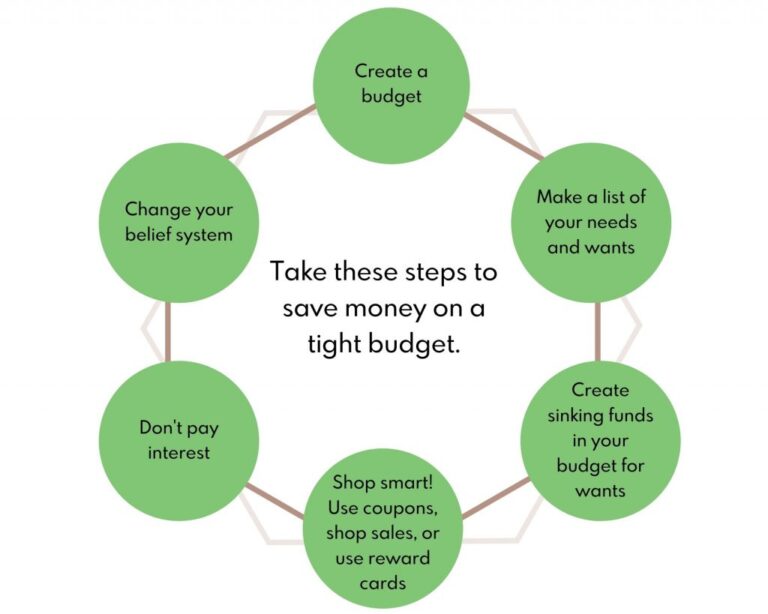Common Finance Mistakes to Avoid: Protect Your Wealth and Build Strong Financial Habits
Managing your finances effectively is crucial to achieving long-term financial success, but even small mistakes can have significant consequences. Whether you’re new to budgeting or a seasoned investor, it’s easy to fall into financial traps that can derail your goals. From failing to plan for unexpected expenses to making poor investment decisions, common finance mistakes are often avoidable with a little knowledge and preparation. This article will walk you through some of the most common finance mistakes to avoid, helping you protect your wealth and set yourself up for financial security.
Not Having a Clear Budget: The Foundation of Financial Success
One of the most common finance mistakes is not having a clear and realistic budget. Without a budget, it’s difficult to track your income, expenses, and savings, making it more challenging to meet your financial goals. A budget allows you to manage your money effectively, identify areas where you may be overspending, and prioritize important financial goals, such as saving for retirement or paying off debt. To create a successful budget, track your income and expenses, set clear spending limits, and regularly review your budget to make adjustments. Starting with a clear budget is one of the most effective ways to avoid financial stress and build a stable financial foundation.
Ignoring Emergency Savings: The Unexpected Can Happen Anytime
Another significant mistake is neglecting to build an emergency fund. Life is full of unexpected events, such as medical emergencies, car repairs, or job loss, and these situations can have a major financial impact. Having an emergency savings fund can help you navigate these challenges without going into debt or draining your savings. Aim to set aside three to six months’ worth of living expenses in a separate savings account. This fund will give you peace of mind and provide a safety net in case of unexpected financial difficulties, allowing you to avoid relying on credit cards or loans in times of need.
Falling for High-Interest Debt: Breaking Free from the Debt Cycle
High-interest debt, such as credit card balances, is one of the most common financial pitfalls. The longer you carry a balance, the more interest you’ll pay, making it harder to get out of debt. One of the biggest mistakes you can make is allowing credit card debt to accumulate without paying it off. To avoid this, prioritize paying off high-interest debts as quickly as possible. Consider consolidating your debts or transferring balances to a card with a lower interest rate. Additionally, avoid using credit cards for non-essential purchases and always strive to pay off your balance in full each month. Reducing high-interest debt is key to regaining financial freedom and improving your overall financial health.
Making Impulsive Investment Decisions: The Danger of Chasing Quick Gains
Investing can be a great way to build wealth over time, but making impulsive or emotional investment decisions is a common mistake. Many people are tempted by the idea of quick financial gains and rush into high-risk investments without fully understanding the risks involved. Whether it’s chasing after the latest stock trend or investing in speculative assets, these decisions can result in significant losses. To avoid making impulsive investment choices, develop a clear investment strategy based on your long-term financial goals and risk tolerance. Diversify your portfolio and avoid putting all your money into one investment. Remember, investing is a marathon, not a sprint, and long-term, steady growth is the key to building lasting wealth.
Neglecting Retirement Planning: Time is Your Most Valuable Asset
It’s easy to delay retirement planning when you’re young, thinking you have plenty of time to start saving. However, neglecting retirement savings early on can result in missed opportunities for compound growth. The earlier you start saving for retirement, the more time your money has to grow. Not contributing to retirement accounts like 401(k)s or IRAs, or failing to take advantage of employer matching contributions, can cost you in the long run. Even small contributions today can make a big difference in the future. Make retirement savings a priority, and aim to contribute regularly to your retirement accounts, taking full advantage of tax-advantaged accounts to grow your savings more efficiently.
FAQs
- What are the consequences of not having a budget? Without a budget, you may overspend, fail to save for future goals, and find yourself in debt. A budget helps you manage your money and prioritize your financial objectives.
- How much should I have in an emergency fund? Aim to save three to six months’ worth of living expenses in an emergency fund to cover unexpected costs like medical bills, car repairs, or job loss.
- What is the best way to pay off high-interest debt? Focus on paying off high-interest debts first. Consider consolidating your debt or transferring balances to a low-interest credit card, and always pay off your balance in full each month.
- How can I avoid impulsive investment decisions? Develop a clear investment strategy based on your financial goals, diversify your portfolio, and avoid making emotional or impulsive decisions based on market trends.
- Why is retirement planning important at a young age? The earlier you start saving for retirement, the more time your money has to grow through compound interest. Delaying retirement planning can result in missing out on significant growth.

